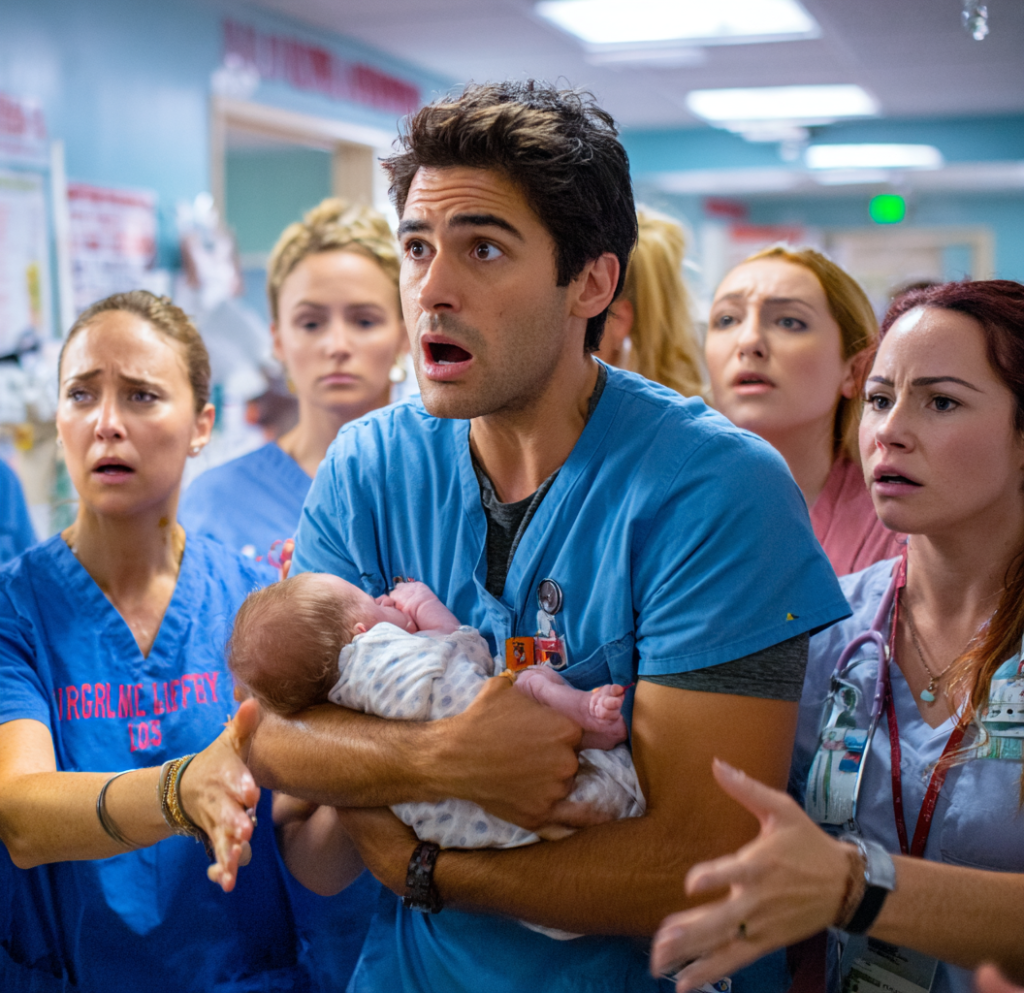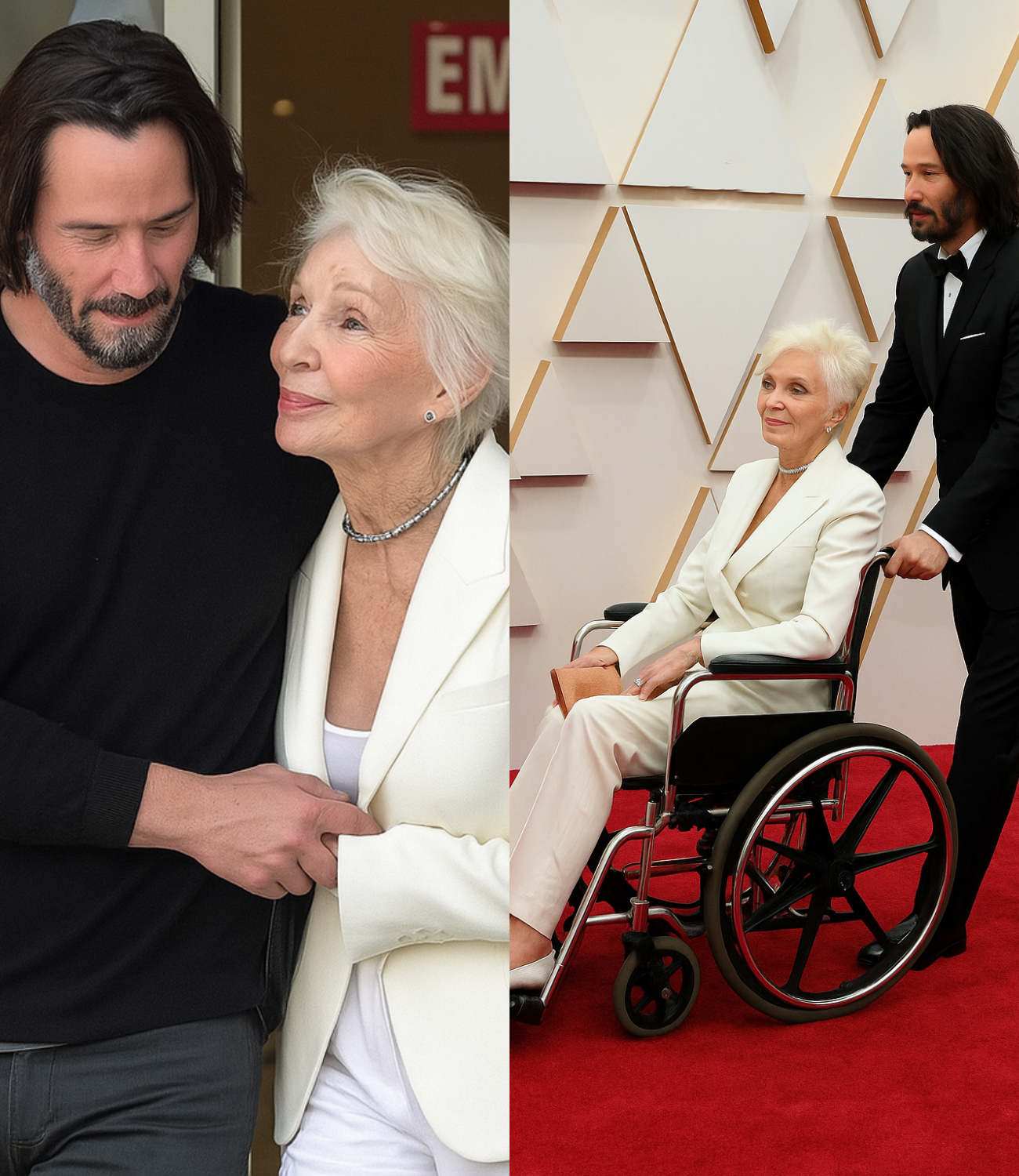It was the kind of summer day that felt like the world was wrapped in a suffocating blanket of heat. The air was thick and unmoving. Even the breeze had given up. Sidewalks rippled in the sunlight, and the pavement in the parking lot of the Maplewood Shopping Center radiated a heavy, oppressive warmth. Most people stayed indoors—smart enough to avoid the blistering midday sun.
Lucas Reynolds, 23, had just finished his shift at a small electronics repair shop tucked at the edge of town. Between full-time work and night classes, he didn’t have much time for anything else. Life was a loop—school, work, home, repeat.

With his backpack over one shoulder, Lucas crossed the empty, sunbaked lot. The plaza was mostly shut down for renovations, with only a few cars left to broil under the sun. That’s when he heard something.
Faint. Weak. A soft cry, barely audible.
He stopped. Listened again.
There it was.
Drawn by the sound, Lucas approached a black SUV parked near the edge of the lot. The windows were dark, but something inside moved. As he got closer, the shape became clear—a small child in a car seat, motionless but alive.
His heart dropped.
The toddler couldn’t have been more than a year old. His face was flushed and soaked in sweat. His lips were cracked. His tiny chest rose in shallow, labored breaths. The heat inside the car was stifling.
“Hey! Can you hear me?” Lucas knocked hard on the window. Nothing. He tried the doors—locked.
He looked around. The lot was deserted. No parent. No sign of anyone coming.
He pulled out his phone to dial emergency services, but when he saw the boy’s eyes beginning to roll back—he knew he couldn’t wait.
Time had run out.
Without hesitation, Lucas grabbed a heavy landscaping rock from a nearby planter. “I’m sorry, little guy,” he muttered before slamming it into the rear window. The glass exploded. He reached inside, careful to avoid the sharp edges, and freed the child from the car seat.
The baby’s skin was burning hot.
Lucas cradled him tightly and ran as fast as he could toward the urgent care clinic just down the street. The child whimpered faintly, still conscious.
“Help! There’s a baby—left in a hot car—he’s in trouble!” Lucas shouted as he burst through the doors, gasping for air.
Medical staff rushed to take over. They whisked the baby to the back while Lucas slumped into a chair, drenched in sweat, hands shaking. A receptionist quietly handed him a tissue.
“You did the right thing,” she said gently. “You probably saved his life.”
Fifteen tense minutes passed before a nurse returned. The child had been severely dehydrated and was nearing heatstroke—but they had stabilized him. Had it been just a few minutes later, the outcome could’ve been tragic.
Lucas felt a wave of relief wash over him.
But just when things seemed to be settling, the front doors flew open with a loud crash.
A woman in her early thirties stormed in, eyes blazing. “Where’s my son?” she shouted.
A nurse took her back, but soon she returned—this time, straight toward Lucas.
“You!” she barked. “You smashed my window!”
Lucas stood up, startled. “Ma’am, your son—he was—he almost—”
“I was only gone five minutes!” she snapped. “You had no right! You’re going to pay for that damage. I’m calling the cops!”
The waiting room went silent.
Lucas stood speechless. He had expected concern, gratitude—anything but this.
A nurse stepped in. “Your son was in serious condition,” she said, voice calm but firm. “That man likely saved him.”
But the woman—later identified as Karen Ellis—was already on the phone, reporting a “stranger breaking into her car and grabbing her child.”
Within minutes, two police officers arrived. One of them, Officer Grant, approached Lucas with professionalism and calm.
Lucas told his side—how he heard the sound, saw the child, and knew time was critical. The officer listened carefully.
They then spoke with the doctors, who confirmed everything: the baby had been in clear medical danger. Lucas’s actions had likely saved the child’s life.
Then the officers turned to Karen.
“Ma’am,” Officer Grant said, “leaving a young child locked inside a vehicle in this heat is extremely dangerous. You’re fortunate someone acted.”
Karen tried to explain, “I was just picking something up at the pharmacy—”
“You could still face charges for endangering a child,” the officer said, cutting her off. “For now, we suggest you concentrate on your child’s recovery.”
Lucas remained quiet. He didn’t want praise. He didn’t want confrontation. He just wanted the boy to be safe.
Police took statements and issued Karen a stern warning. She was allowed to leave with her son—but the situation wouldn’t end there.
As for Lucas, Officer Grant thanked him directly. “A lot of people wouldn’t have gotten involved,” he said. “You did. You made a difference.”
Lucas just shrugged. “I couldn’t walk away,” he replied quietly.
The Story That Touched the Nation
What Lucas didn’t know was that a passerby had taken a photo of him outside the clinic—holding the baby close, sweat-soaked, glass dust on his shirt. That photo hit social media by sunset, captioned:
“He broke a car window to save a baby in a heatwave. The mom yelled about the window. He stayed calm and protected the child. This is what a real hero looks like.”
By morning, local and national news outlets had picked up the story. “Humble Hero of Maplewood” read one headline. Messages poured in across social platforms—praise, support, gratitude.
Lucas’s phone buzzed constantly, but he ignored most of it. The attention made him uncomfortable. He hadn’t done it to be noticed.
Then one evening, there was a knock at his door.
A man in a suit introduced himself as a representative from the Hawkins Foundation for Child Safety. He handed Lucas an envelope.
“We’d like to honor you with this year’s Community Hero Award,” he said.
Lucas blinked, surprised. “I didn’t do it for a reward.”
The man smiled. “Exactly why you deserve it.”
A Lesson in Courage
In the days that followed, Lucas spoke to a group of elementary school students about courage and doing the right thing.
“I saw someone who needed help,” he told them simply. “So I helped.”
One student raised a hand. “Were you scared?”
Lucas nodded. “Yeah. But being scared doesn’t mean you stop. It means you act anyway.”
A Quiet Resolution
Karen Ellis was never criminally charged, but she was ordered to attend parenting classes and complete community service. Her son made a full recovery.
Months later, Lucas received a short handwritten note from her:
“I was wrong. Thank you for saving my son.”
He left it unopened for weeks. When he finally read it, he gave a small nod and tucked it away.
Because, for Lucas, what mattered most wasn’t the letter. Or the award. Or the attention.
It was the simple truth that, on a scorching summer afternoon, he heard a cry—and answered it.
And that, in his heart, was more than enough.




